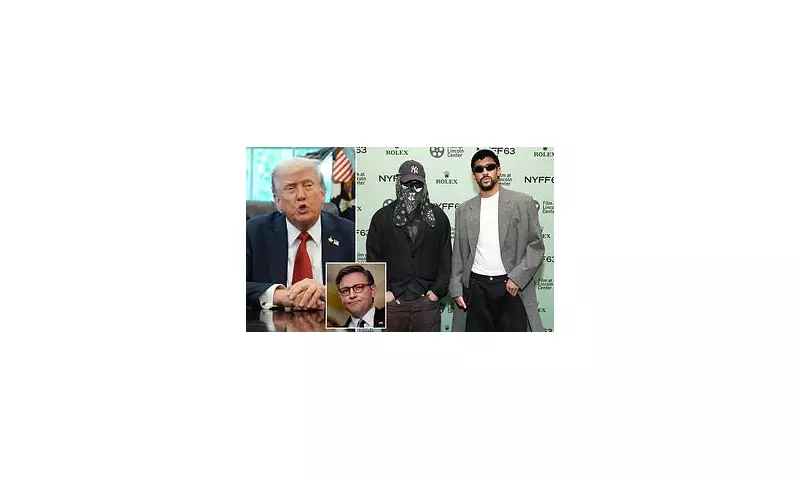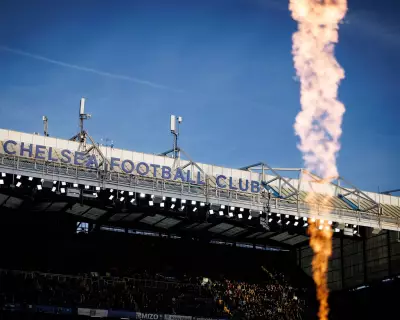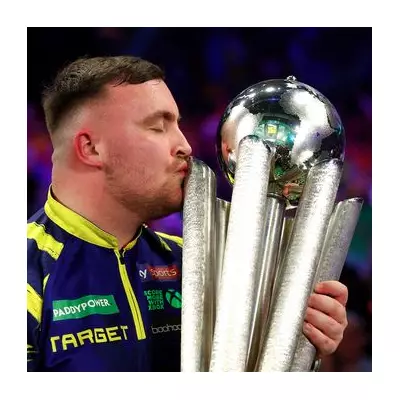
In a dramatic collision of sports, music, and politics, Latin music sensation Bad Bunny has reportedly drawn a firm line in the sand regarding his potential involvement in the upcoming Super Bowl LVIII halftime show. According to exclusive reports, the Puerto Rican superstar refused to share the stage with country musician Lee Greenwood, whose patriotic anthem "God Bless the USA" has become synonymous with Donald Trump's political rallies.
The Political Standoff
The controversy emerged when House Speaker Mike Johnson allegedly advocated for Greenwood's inclusion in the prestigious halftime performance. Johnson, a prominent Republican figure, reportedly pushed the NFL to feature the conservative favourite alongside Bad Bunny, creating an unlikely and politically charged musical pairing.
Sources indicate that Bad Bunny's team immediately rejected the proposal, refusing to participate in any performance that would include Greenwood. The Latin trap artist has never shied away from political statements, having previously supported Puerto Rican independence movements and criticised political figures who opposed statehood for the territory.
NFL's Political Tightrope
This incident highlights the increasingly difficult position the NFL finds itself in as political divisions seep into America's most-watched sporting event. The league has long attempted to maintain neutrality in political matters, but the growing trend of artists using their platforms for political expression has complicated these efforts.
The proposed collaboration between the progressive Latin artist and the conservative country singer would have created what one insider described as "the most politically charged halftime show in Super Bowl history." Bad Bunny, known for his vibrant, genre-defying music and massive global appeal, represents a stark contrast to Greenwood's traditional patriotic themes.
Historical Context of Political Super Bowls
This isn't the first time politics has influenced the Super Bowl stage. The NFL has navigated various political controversies in recent years:
- The 2016 halftime show featuring Beyoncé's homage to the Black Panthers
- Colin Kaepernick's kneeling protests during the national anthem
- Various artists declining performances in solidarity with social justice movements
- The ongoing debate about military flyovers and patriotic displays
What makes this situation particularly notable is the direct involvement of high-ranking political figures in shaping the entertainment programming, blurring the lines between sports, entertainment, and political messaging.
What's Next for Super Bowl LVIII?
With the halftime show planning now in flux, the NFL faces critical decisions about how to proceed. The league must balance several competing interests:
- Maintaining the show's entertainment value and global appeal
- Navigating the political preferences of its diverse audience
- Respecting artists' creative freedom and political positions
- Managing relationships with political figures and sponsors
As the situation develops, all eyes will be on the NFL's next move. Will they proceed with Bad Bunny as a solo act? Will they seek alternative artists? Or will this political standoff lead to a completely different direction for one of television's most-watched musical events?
One thing remains certain: in today's politically charged climate, even America's biggest sporting spectacle cannot escape the nation's divisions.




